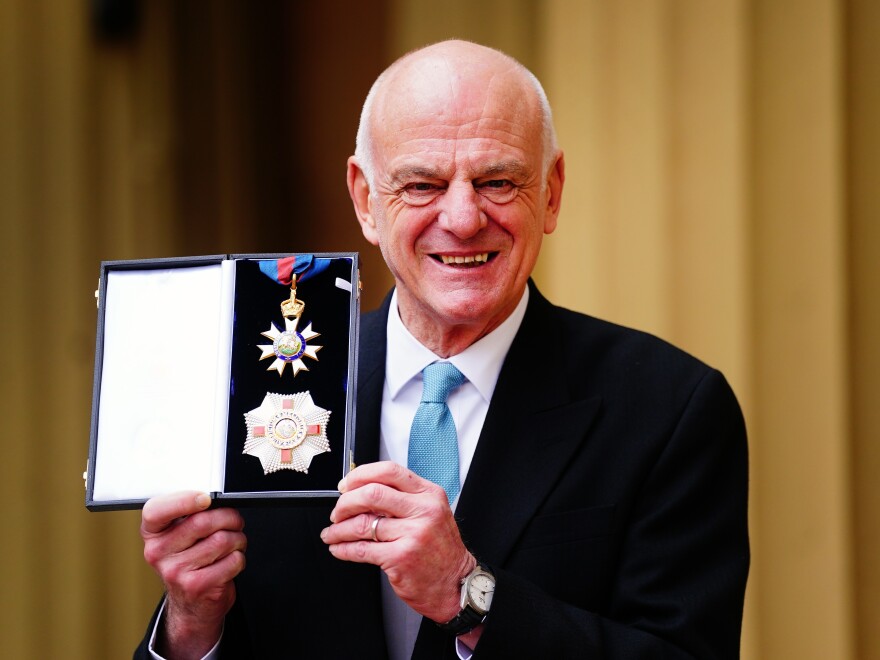At 75, Sir David Nunes Nabarro passed away on Friday. He was a doctor, an advocate for global public health, and one of the first specialists to assist in the international response to the COVID-19 pandemic.
WHO director-general Tedros Ghebreyesus posted on social network X on Saturday, saying, “David was a wise, generous mentor to countless individuals, and a great champion of global health and health equity.” “His work touched and impacted so many lives across the world.”
A medical professional by training, Nabarro worked in a variety of academic and nonprofit capacities in the fields of child health and nutrition in Iraq, South Asia, and East Africa during his early career.
However, that is only a portion of his legacy. When the 2004 Indian earthquake and tsunami struck, he assisted in organizing the World Health Organization’s response. He worked in epidemiology to control bird flu, malaria, and AIDS.
Perhaps his most well-known contributions were to the World Health Organization and the United Nations, where he worked to prevent the spread of diseases like Ebola in 2014 and later assisted in disseminating public health messages in the wake of the COVID-19 pandemic. In 2023, King Charles knighted him for his efforts.
Nabarro bemoaned the way politics had started to change how states handled international health crises.In 2021, Nabarro told NPR that the coordinated international response to the 2014 Ebola outbreak was “amazing.” He informed A Martinez that things had altered by the time COVID-19 emerged.
“There has been a funny shift between 2015, when I was working on Ebola, and 2020 to ’21, working on COVID,” Nabarro stated. “And it’s this I find that world leaders are just no longer apparently able to work together and deal with this problem through a global response.”
Although he was a finalist to lead the WHO in 2017, Nabarro lost to Tedros. Nabarro subsequently joined the group as a special envoy, assisting specifically with communications regarding how to deal with a novel coronavirus that emerged in early 2020.
“Please take this virus very seriously,” Nabarro begged the American people during the early months of the pandemic, asking them to wear masks, stay apart, and stay indoors if they were ill. He emphasized in a June 2020 interview with CNN that “it is important that we recognize that this virus is dangerous and we’ve all got to work to get on top of it.” “We’re dealing, frankly, with an enemy.”
As the pandemic progressed, Nabarro also started to criticize the government’s recurrent use of lockdowns as a reaction to breakouts. Rather, he thought that the focus of national responses should be on case isolation and detection. He recalled the early years of the pandemic and told a reporter for the Sydney Morning Herald, “We just couldn’t understand why so many countries were see-sawing between what was sometimes called freedom and lockdown.” “That isn’t the proper method. You maintain a low number of instances by having excellent monitoring, isolation, and detection.
In a 2021 interview with NPR, he also advocated for vaccination fairness, stating that affluent countries should pay for vaccines for “poor countries around the world.” He stated: “We’re in a situation where there’s still quite a tight supply situation, and that is always a concern to us in the World Health Organization ’cause the one thing we want is every country in the world to be able to access a fair share of the vaccine, and we’re not there at the moment.”
His career was distinguished by his modesty, work ethic, and capacity to unite people. “David was notable for getting very different parts of a complex U.N. system to talk to each other,” Aur lia Nguyen wrote in an email to NPR. She led programmatic work for Gavi, the Vaccine Alliance, before becoming deputy CEO of CEPI, the Coalition of Epidemic Preparedness Innovations. He was the Gandalf of the United Nations, silently bringing people to the table who otherwise would not have spoken to one another while always working behind the scenes with a larger goal in mind. He worked tirelessly around the clock, and while some of his employees may have criticized him for their ruthlessness, his passion and conviction made it impossible not to want to follow him. We will really miss him.
An organization called Scaling Up Nutrition, a global NGO dedicated to combating child hunger, lamented the loss of his voice. “For David, nutrition was never just about food, it was a core element of societal change and development,” the group noted in a statement. “David brought people together not just across disciplines and borders, but across ideologies believing deeply that progress could only be made by listening, learning, and leading with empathy.”
According to a statement from the 4SD Foundation, which he co-founded to develop future leaders in the fields of food, nutrition, and climate change, Nabarro passed away unexpectedly in his home late Friday. They did not reveal the reason of death. His wife, Flo, five children, and seven grandchildren survive him.
Copyright 2025 NPR






